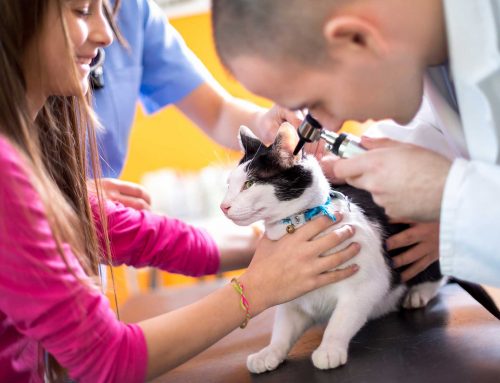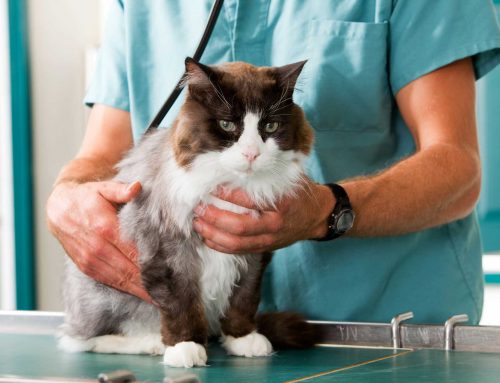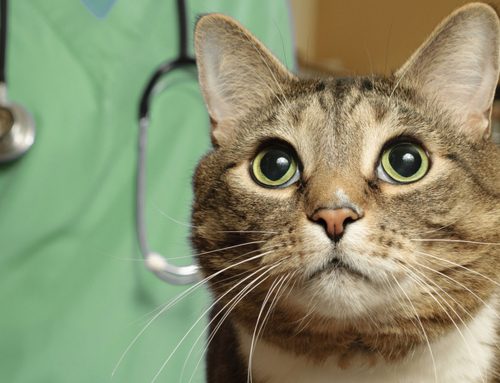Old age is not a disease
How-and when-will I know that my cat is getting “old”?
 As cats move into the geriatric phase of their lives, they experience gradual changes that are remarkably like those of ageing humans: their hair may turn grey, their bodies are not as limber and reflexes not as sharp as they once were. Hearing, eyesight and the sense of smell may deteriorate and energy levels seem to diminish. In fact, the first sign of ageing is often a general decrease in activity, combined with a tendency to sleep longer and more soundly. Such signs may begin to manifest themselves anywhere between the ages of 7 and 11. Furthermore, a healthy cat who lives indoors, especially one that has been desexed, will most likely age later than one which has been affected by disease or environmental problems early in life. Thus, while wild or feral tomcats have an average life span of only 3 years, a castrated male house cat that is well cared for can live happily and healthily into his late teens or early twenties. Again, as with humans, the ageing process will vary with the individual. Your veterinarian will be able to judge when it’s time to consider your pet a “senior”.
As cats move into the geriatric phase of their lives, they experience gradual changes that are remarkably like those of ageing humans: their hair may turn grey, their bodies are not as limber and reflexes not as sharp as they once were. Hearing, eyesight and the sense of smell may deteriorate and energy levels seem to diminish. In fact, the first sign of ageing is often a general decrease in activity, combined with a tendency to sleep longer and more soundly. Such signs may begin to manifest themselves anywhere between the ages of 7 and 11. Furthermore, a healthy cat who lives indoors, especially one that has been desexed, will most likely age later than one which has been affected by disease or environmental problems early in life. Thus, while wild or feral tomcats have an average life span of only 3 years, a castrated male house cat that is well cared for can live happily and healthily into his late teens or early twenties. Again, as with humans, the ageing process will vary with the individual. Your veterinarian will be able to judge when it’s time to consider your pet a “senior”.
As your cat ages, regular checkups at the veterinarian’s become more important than ever. In fact, at this stage of your pet’s life, it is recommended that he or she receive a thorough examination every 6 months, as adult cats can age as much as 4 years (in human terms) within the period of one calendar year. Besides the usual complete physical examination, your veterinarian may conduct a urine and faecal analysis and a full blood screen. If your cat goes outdoors, or is part of a multi-feline household, he or she may also recommend that your pet be tested for the presence of feline leukaemia or immunodeficiency virus.
Keep your vet informed
Most importantly, you should tell your veterinarian about any noticeable change in your cat’s physical condition or behaviour. A problem that you may assume is simply related to your pet’s advanced age may actually be the result of a treatable medical condition. For example, your cat’s lack of interest in exercise or play may not stem from the normal decrease in energy that comes with age, but be due to the stiffness and pain that results from arthritis a condition that can be managed with the proper treatment. Regular, semi-annual checkups can thus help your veterinarian work out a suitable preventative health program for your pet and catch any disorders sufficiently early to provide effective treatment. Working together, you can both ensure that your cat’s senior years will be healthy and happy ones.

Senior cat food do’s & don’ts
- Do make sure that your cat’s diet is well balanced, highly palatable, digestible and contains potassium and taurine.
- Since food with high mineral and protein content should be avoided, ask your veterinarian for recommendations about a type that’s right for your cat.
- Do consider, in consultation with your veterinarian, increasing the level of fibre in your cat’s diet, especially if they suffer from frequent constipation.
- Do try warming food to body temperature – it may make meals more tempting to senior cats with poor appetites.
- Don’t feed your cat between-meal snacks or table scraps.
The top 10 health tips for senior cats
- Take your cat to their veterinarian for twice-yearly checkups.
- Become informed about conditions and diseases common to senior cats, be on the lookout for symptoms and, should they arise, inform your cat’s veterinarian promptly.
- Feed your cat the best food you can afford and consider giving them several small meals a day rather than one large one.
- Don’t overfeed – obesity causes many health problems and may shorten your cat’s life.
- Make sure your cat receives adequate exercise to preserve muscle tone, preserve bone and joint strength and fight obesity.
- Look after your cat’s dental health. Have their teeth cleaned professionally when your veterinarian so advises, and ideally brush their teeth daily.
- Have your veterinarian do a risk assessment to determine an appropriate vaccination protocol for your cat.
- Do your utmost to control fleas and intestinal worms and make sure your cat and their environment (their bed, play area, etc.) are always spotlessly clean.
- Check your cat’s nails weekly and trim them as often as necessary, as senior cats may not use their scratching posts as often as they did when younger.
- Give your cat lots of love and attention and do all you can to keep them interested, active, happy and comfortable.




